


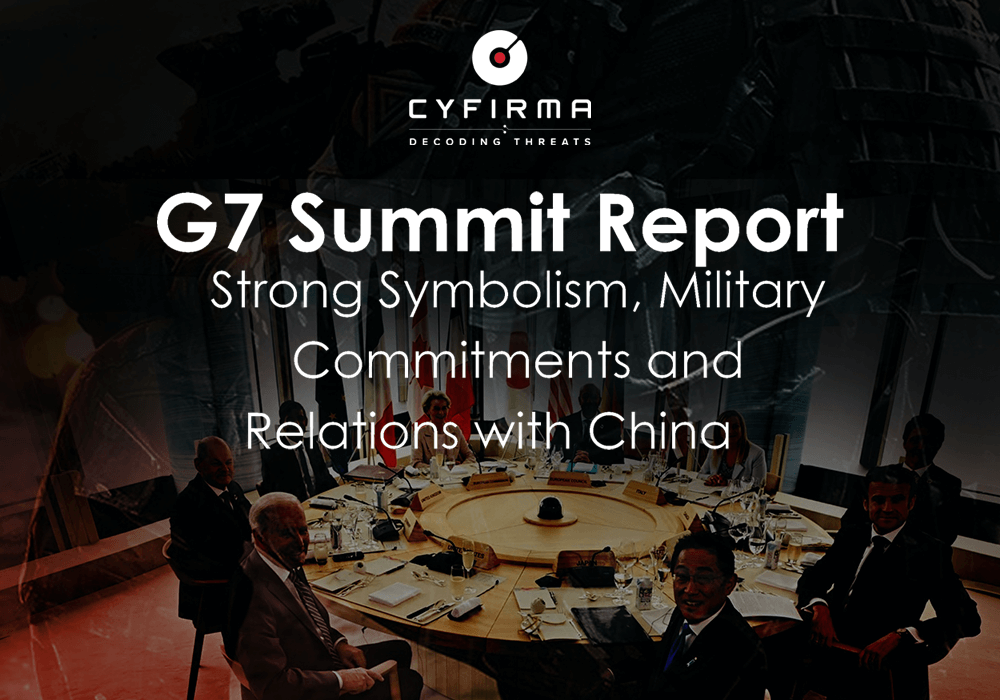
The Group of Seven (G7) singled out China on issues including Taiwan; non-market policies; malign business and cyber practices (such as illegitimate technology transfer, or data disclosure / human rights abuses), which naturally underscores the wide-ranging tensions between Beijing and the group of major industrialized democracies. Beijing has responded in a fiery way, with Chinese state media berating the outcome of the meeting, singling out Japan, Great Britain, and the United States in their rhetoric.
The group has also issued a separate and way more damning communique on Russia, and among other things stated that the G7 countries will deprive Russia of technologies, industrial equipment, and services that serve its war machine. Russia, a close ally of China that was also called out in the G7 statement over its war in Ukraine, said the summit was an “incubator” for anti-Russian and anti-Chinese hysteria, and stated the G7 countries are on a path of dangerous escalation.
This year’s G7 summit was completely overshadowed by the largest conventional war in Europe since the WWII and by the increasing tension happening between China and the G7 countries. The active shooting war was given precedence to the cyber realm, which has not featured on the agenda. However, that does not mean the outcome of the summit would have no impact on nation-state cyber ops indirectly.
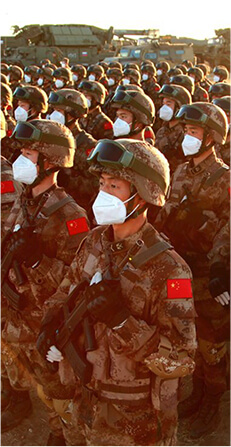
The gathering witnessed the powerful image of Ukrainian President Volodymyr Zelenskyy, laying flowers at the memorial to the 140,000 victims of the Hiroshima nuclear bomb explosion – at a time when Russia has repeatedly threatened to use nuclear weapons against his country and the West in general. The symbolic use of Hiroshima as a host destination blatantly emphasises the G7’s unity in their condemnation of nuclear weaponry.
Zelenskyy’s participation in the G7 summit was announced just hours before his arrival aboard a French government plane. The Ukrainian president flew out of Hiroshima with the promise that his country would receive F-16 fighter jets from the West, in a move counterbalancing Russia’s airframe and capability superiority, enabling him to keep the Russian air force in check for the moment, and possibly later shift the course of the war in Ukraine’s favour. It is not yet known how many of these planes will be delivered, or which countries will deliver them and when, although the likely candidates are Denmark and Netherlands. The president of the U.S. Joe Biden has publicly approved the allies providing the American planes to Ukraine. The U.S., Germany, France, the UK, or Belgium have already announced their intention to train Ukrainian pilots.
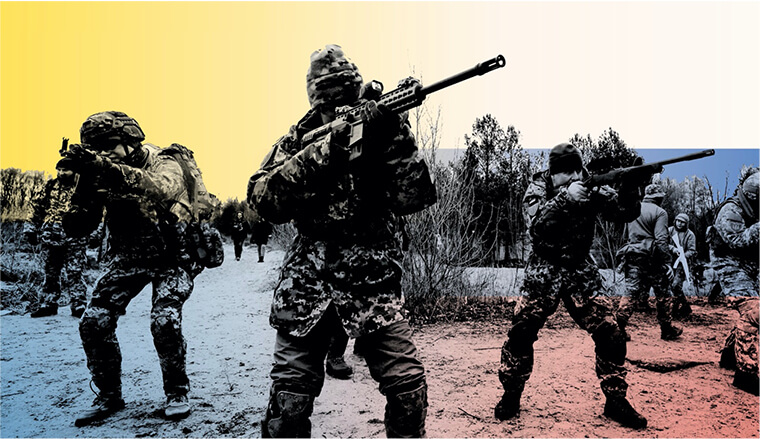
Just a few months ago, such a shift in the policy of military aid was unimaginable, as was the supply of modern Western air defence systems or Western tanks. Today, the Ukrainian army has confidence in its allies, as the G7 countries have demonstrated their willingness to support it.
Zelenskyy’s assertive yet dignified manner arguably was the catalyst to this change. The spirit of the military, political, and economic commitment to the defence of Ukraine has been expressed in a joint statement from G7 leaders. Joe Biden, in a personal meeting with Zelenskyy, announced the 38th package of US military aid to Kiev, since the beginning of the war: this latest package is worth $350 million, with priority given to anti-aircraft systems, HIMARS rocket launchers, ammunition, and F-16s, which is undeniably an excellent result for the defence of Ukraine and security of Europe.

This sentiment is also reflected in the reaction of the Russian Deputy Foreign Minister Alexander Grushko: “We note that the Western countries continue to stick to the scenario of escalating tension. This means a huge risk for themselves”, he said of the pledged support, with implied threat. Previously, Russian reaction to Western arms deliveries tended to take the form of mockery, bragging about their purported, immediate ability to destroy Western weapons, the absence of sarcasm perhaps indicates increasing fear of the Russian leadership, as its bet on the West tiring of the war is yet to pay off.
The G7 agreement to tighten anti-Russian economic sanctions is undoubtedly causing further headaches for the Kremlin. The US, Japan, Canada, Britain, Germany, France, and Italy, with the whole of the EU in their wake, intend to ‘monitor far more vigorously the export of industrial machinery, tools and other technologies, used by Moscow for its war machine’. This means substantially tightening up controls on compliance with the sanctions already in place and preventing their circumvention.
The 11th EU sanctions package is currently being discussed by EU foreign ministers in Brussels: United States has already banned the export of American goods to 70 clients in Russia and other countries and will impose bans and restrictions on 300 individuals and organisations, including shipping owners in Europe, Asia and the Middle East, who are in violation of the sanctions, previously imposed. “We will deprive Russia of technologies, industrial equipment and services that serve the war machine,” the statement said.
However, though Zelenskyy may have rejoiced at the proclaimed Western unity (including strong support from Asian partners like Japan and South Korea), his contacts with other leaders of major economies, invited to Hiroshima, arguably did not go so well.
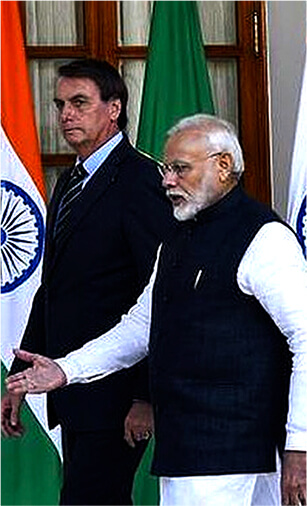
While Indian Prime Minister Narendra Modi promised that his country would do everything possible to resolve the Russian-Ukrainian conflict and expressed “sympathy for the suffering of the Ukrainian people”, he gave no indication of support for, or even compliance with, the sanctions announced against Russia, and has neither condemned Russian aggression. India has enjoyed good relations with Russia for a long time, with an extensive history of arms, oil trade, and processed products, in effect partially circumventing Western sanctions. While abstention from the sanction’s regime is understandable for the national interest of rapidly developing India, the failure to officially recognise Russia as an aggressor in the war leaves India in a perceived position of a Russian partner, which perhaps falls short of the role, many observers of international relations expect from the soon to be most populous country in the world.
In addition, Brazilian President Luiz Ognatico Lula de Silva recently accused Washington of inciting and fuelling the war, by supplying arms to Ukraine. According to Brazilian sources, Lula was left waiting for Zelensky, who failed to promptly arrive in time for the meeting, while other sources report that it was Lula who refused to meet Zelenskyy. The BBC said the Brazilian delegation was “taken aback” by Zelensky’s presence, and the fact that they had not been informed of his attendance in advance. Some sources report that Lula recently claimed, Zelenskyy was “as responsible for the war as Vladimir Putin” and has been recorded on official footage vacillating, while other G7 leaders greeted him just a few meters away.
The Sino-US relations “will soon thaw”, US President Joe Biden said in a surprising statement at the final press conference. He described the recent incident over Chinese spy balloons over the US as “stupid” and praised the fact that a dialogue could be re-established. He predicted that Secretary of State Anthony Blinken would soon travel to Beijing, and Biden also agreed to talk not of “decoupling” from China, but of “risk reduction”; language advocated by European members of G7 and by Japan.
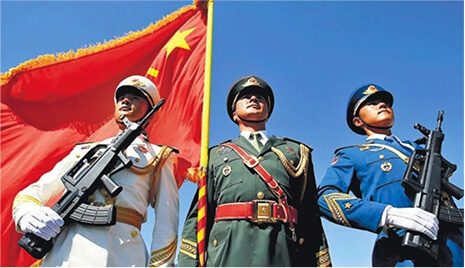
The rest of the statement, however, was critical in its references to China’s ‘militarisation’ of the Asia- Pacific area or human rights violations in Tibet, Xinjiang, and Hong Kong. It also called for a peaceful resolution of the dispute over Taiwan and for addressing the challenges posed by China’s non-market policies and practices, “which distort the global economy”. These are to be represented by” malign practices, such as illegitimate technology transfer or data disclosure”, which translates to cyber and industrial espionage and intellectual property theft.
The positive elements in the US tone towards China can be explained both by pressure from European countries – French President Emmanuel Macron is said to have favoured the conciliatory language – and by the fact that China continues to support Russia politically but not militarily. Indeed, the G7 has almost solemnly called on Beijing to pressure Russia into withdrawing from Ukraine.
As expected, the Chinese reaction to the summit’s outcomes was negative. It can be assumed that if China does not cross the “red line” in terms of military support for Russia, the G7 countries will try to find an arrangement in their relations that will continue to be beneficial to both G7 and China.
The Chinese embassy in Britain urged London to “stop slandering China”, after British Prime Minister Rishi Sunak said Beijing represents the world’s greatest challenge to security and prosperity. The fiery reactions from Moscow and Beijing are likely to be followed by steps in the fifth domain, which both countries usually deploy in comparable situations, since they view hacking as a legitimate tool of statecraft. The cyber defenders in the G7 countries should thus be on high alert.